This article has been reviewed according to Science X's editorial process and policies. Editors have highlighted the following attributes while ensuring the content's credibility:
fact-checked
peer-reviewed publication
trusted source
proofread
Researchers find that early human migrants followed lush corridor-route out of Africa
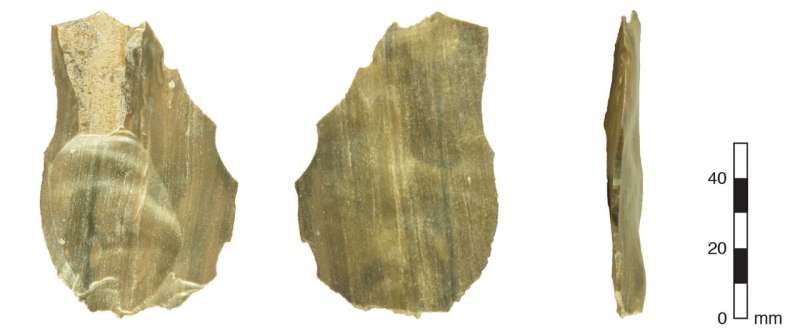
An international team of scientists has found early human migrants left Africa for Eurasia, across the Sinai peninsula and on through Jordan, over 80,000 years ago.
Researchers from the University of Southampton (UK) and Shantou University (China), together with colleagues in Jordan, Australia and the Czech Republic, have proved there was a "well-watered corridor" which funneled hunter-gatherers through The Levant towards western Asia and northern Arabia via Jordan.
Their findings support previous research conducted in Arabia suggesting this green, overland route, which is now desert, was favored by traveling Homo sapiens heading north. The paper, "Human dispersals out of Africa via the Levant," has been published in the journal Science Advances.
"Modern' humans evolved in Africa between 300,000 and 200,000 years ago and dispersed out of the continent in several stages. It's thought that over tens of thousands of years they went on to populate Asia and then Europe.
For this latest research, the team conducted fieldwork in the Jordan Rift Valley where they uncovered hand tools, known as "flakes," on the edge of wadis—now dry river channels which, tens of thousands of years ago, were full of water. The scientists used luminescence dating techniques to help establish the age of the sediment the tools were buried in. This method estimates how long it has been since sediment was last exposed to light.
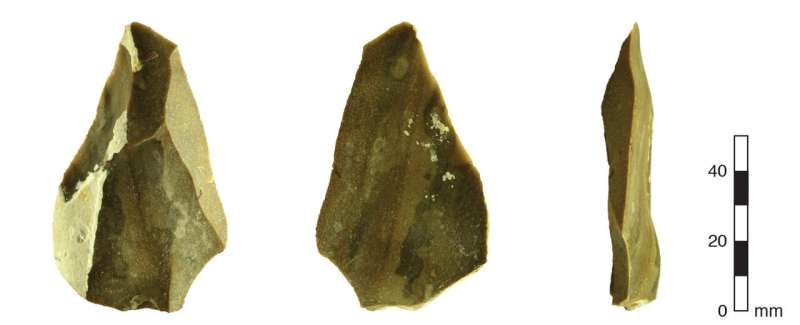
The results showed the tools were likely to have been used approximately 84,000 years ago and then abandoned on the banks of the wadis and subsequently buried over time.
Paul Carling, Professor of Geomorphology at the University of Southampton, said, "It's long been thought that when the sea level was low, humans used a southern crossing, via the Red Sea from the horn of Africa, to get to southwestern Arabia. However, our study confirms there was a well-trodden passage to the north, across the only land-route from Africa to Eurasia.
"Our newly published evidence is a key piece of the puzzle that shows humans migrated using a northern route—using small wetland areas as bases [while] hunting abundant wildlife in the drier grasslands. Although previous studies have looked for large lakes as potential watering holes, in fact small wetlands were very important as staging posts during the migration."
-
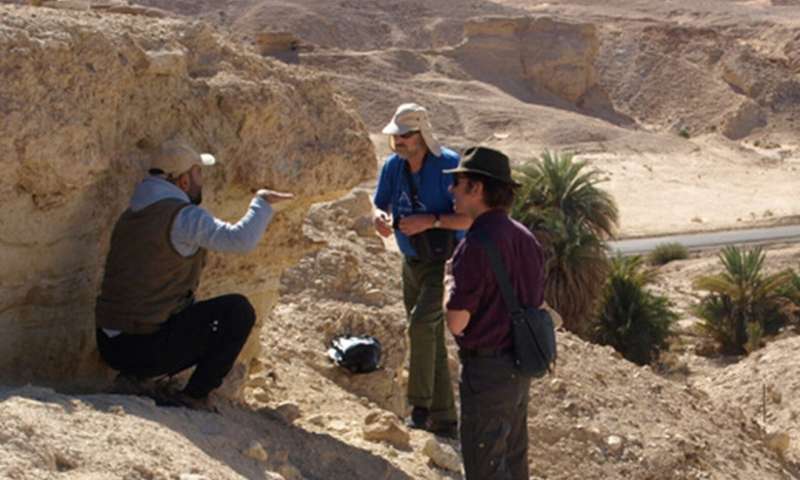
Dr Mahmoud Abass (Shantou University) on left, Professor Paul Carling (University of Southampton) in centre and Dr John Jansen (Czech Academy of Sciences) on right, in the field in Jordan Rift Valley. Credit: University of Southampton -
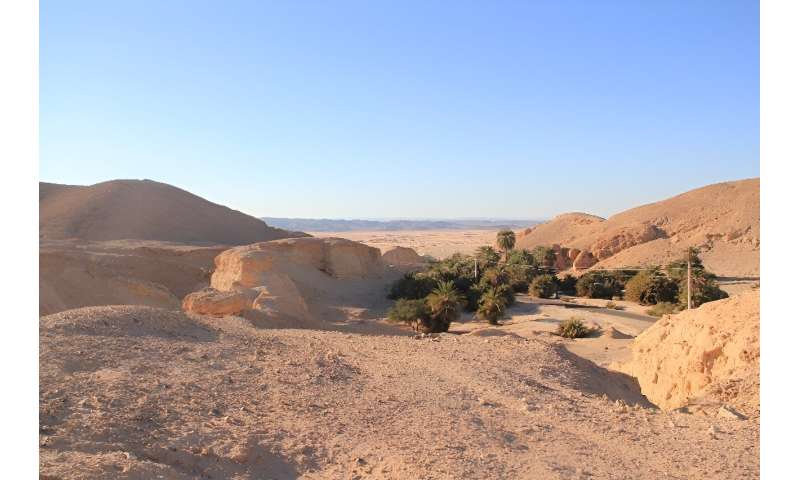
General view of Wadi Gharandal riverine wetland along the Jordan Rift Valley. Credit: Mahmoud Abbas/Shantou University -
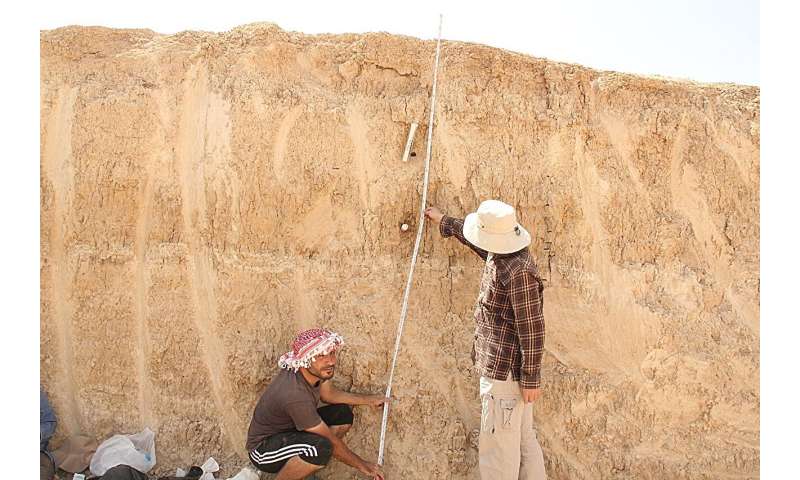
Sampling for luminescence dating from Wadi Hasa area. Credit: Dr Mohammed Alqudah/Yarmouk University
Dr. Mahmoud Abbas, the study's lead author from Shantou University, China, said, "The Levant acted as a well-watered corridor for modern humans to disperse out of Africa during the last interglacial, and we have now demonstrated this is the case in the Jordan Rift Valley zone.
"The paleohydrological evidence from the Jordan desert enhances our understanding of the environmental setting at that time. Rather than dry desert, savanna grasslands would have provided the much-needed resources for humans to survive during their journey out of Africa and into southwest Asia and beyond."
The researchers say their study demonstrates the intimate relationship between climate change, human survival and migrations.
More information: Mahmoud Abbas et al, Human dispersals out of Africa via the Levant, Science Advances (2023). DOI: 10.1126/sciadv.adi6838. www.science.org/doi/10.1126/sciadv.adi6838
Journal information: Science Advances
Provided by University of Southampton



















